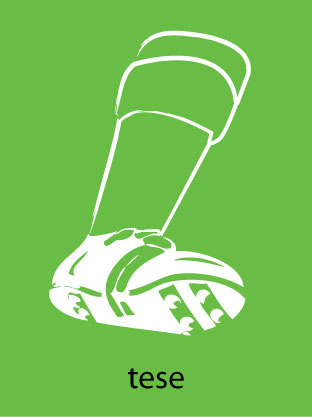A presente tese aborda as políticas voltadas para a Educação Física e para os esportes, com maior atenção ao futebol, no governo do presidente Emílio Garrastazu Médici, destacando a preparação militar da comissão técnica da Copa do Mundo de 1970. A cientifização empreendida pelo governo do presidente Médici alcançou, também, a Educação Física e os esportes. A “ciência moderna” foi decantada em todos os discursos referentes à área e à prática esportiva. Dessa forma, busca-se apontar como se deu a entrada da ciência no futebol brasileiro e como a conquista da Copa do Mundo de 1970 foi usada na tentativa de cristalização da imagem do Brasil como país detentor do futebol. Igualmente a tese aborda como se deu a tentativa de construir o país do futebol tanto por parte do governo Médici como de pessoas ligadas a ele, como foi o caso de João Havelange, presidente da Confederação Brasileira de Desportos (CBD), que fez de tudo para conseguir colocar seus interesses à frente de tudo e de todos. A “invenção” do país do futebol partiu em grande parte da ação desse personagem em conluio com diversas pessoas envolvidas com a caserna, e não só dela, também empresários de multinacionais interessadas no jogo da bola. Além disso, a criação do mito Pelé, o rei do futebol, também analisado aqui, vai ao encontro de tudo que se coaduna com a pátria de chuteiras. Ao mesmo tempo, e por fim, a tese em questão analisa a construção do Estádio Universitário Pedro Pedrossian, mais conhecido como Morenão, na cidade de Campo Grande-MS, um dos estádios que foi usado como sede da Copa do Sesquicentenário, acontecimento também analisado pela presente tese.

Tese
De (pre)potência olímpica a “invenção” do país do futebol
a política para os esportes do governo Emilio Garrastazu Medici (1969-1974)
2014
Pontifícia Universidade Católica de São Paulo
Tese
Doutorado em História Social
218
Arquivos
Resumo
Abstract
This thesis is concerned with the policy faced to Physical Education and to sports, with the most attention to the soccer, in the government of Emilio Garrastazu Médici, contrasting the military training of the technical committee of the 1970 World Cup. The scientifization undertaken by the government of President Medici also reached the Physical Education and the sports. The “modern science” was poured off in every discourse relating to the area and to sports. Thus, it was tried to point out how the entrance of science was in Brazilian soccer and how the winning of the 1970 World Cup was used to attempt crystallization image of Brazil as the soccer country. The thesis also approached how it was the attempt of constructing the soccer country, even on the part of Médici government than of people related to him, as the case of João Havelange, president of the Brazilian Sports Confederation (BSC), who made everything to put his interests in front of everything and everyone. The “invention” of the soccer country departed largely of the union of this personage in collusion with various people involved in the military government, and not only from it, but the multinational corporate executives involved with the soccer games. Furthermore, the creation of the myth Pelé, king of the soccer, also reviewed here, meets everything that combines with the homeland of soccer shoes. At the same time, and finally, the thesis in question examined the construction of Peter Pedrossian University Stadium, better known as Morenão, in Campo Grande city, in the state of Mato Grosso do Sul, one of the stadiums more used as seat of the One Hundred and Fifty Years Cup, fact that is also analyzed for this thesis.
Sumário
INTRODUÇÃO, 15
CAPÍTULO I – A CIENTIFIZAÇÃO DA NAÇÃO, 28
1.1 PROJETO MILITAR PARA A EDUCAÇÃO FÍSICA, 28
1.2 PÉS, MÃOS E CORPOS NUTRIDOS: EDUCAÇÃO FÍSICA NO ÂMBITO ESCOLAR E UNIVERSITÁRIO, 38
1.3 A CIÊNCIA A SERVIÇO DO CORPO E DO ESPORTE NAS PÁGINAS DA RBEF, 48
1.4 A POSTURA DOGMÁTICA: A CIÊNCIA ESPORTIVA COMO PREJUDICIAL, 53
1.5 A POSTURA PRAGMÁTICA: ESPORTE MODERNO A SERVIÇO DA PÁTRIA, 58
CAPÍTULO II – A “FUTEBOLIZAÇÃO” DA NAÇÃO, 63
2.1 O MÉTODO CIENTÍFICO DA EDUCAÇÃO FÍSICA APLICADO À SELEÇÃO BRASILEIRA DE FUTEBOL NA COPA DE 1970, 63
2.2 A “CIENTIFIZAÇÃO” DO FUTEBOL BRASILEIRO: DISCUSSÃO SOBRE A ARTE E A FORÇA, 76
2.3 O JOGADOR DE FUTEBOL BRASILEIRO APRENDENDO A ALIAR ARTE E FORÇA, 82
2.4 ANOS DE CHUMBO & ANOS DE OURO: A COPA DE 1970 E A “SELEÇÃO DO POVO”, 90
CAPÍTULO III – JOÃO HAVELANGE: “O INVENTOR DO PAÍS DO FUTEBOL”, 110
3.1 A ORIGEM DO INVENTOR, 110
3.2 CBD E O “DESCOBRIMENTO DO BRASIL”, 119
3.3 A MANUTENÇÃO DO PODER DENTRO DA CBD E A COPA DE 1962, 131
3.4 RUSGAS, ESPIONAGEM E A CRIAÇÃO DO MITO PELÉ, O “REI DO FUTEBOL”, 135
9 CAPÍTULO IV – A SEDIMENTAÇÃO DO PAÍS DO FUTEBOL, 155
4.1 O SURGIMENTO DO MATO GROSSO DO SUL E O FUTEBOL MARCHANDO PARA O OESTE, 155
4.2 FUTEBOL COMO SINÔNIMO DE MODERNIDADE E INTEGRAÇÃO NACIONAL: O SURGIMENTO DO MORENÃO, 169
4.3 A COPA DO SESQUICENTENÁRIO E A TENTATIVA DE CRISTALIZAR O BRASIL COMO PAÍS DO FUTEBOL, 184
CONSIDERAÇÕES FINAIS, 203
FONTES E BIBLIOGRAFIA, 207

